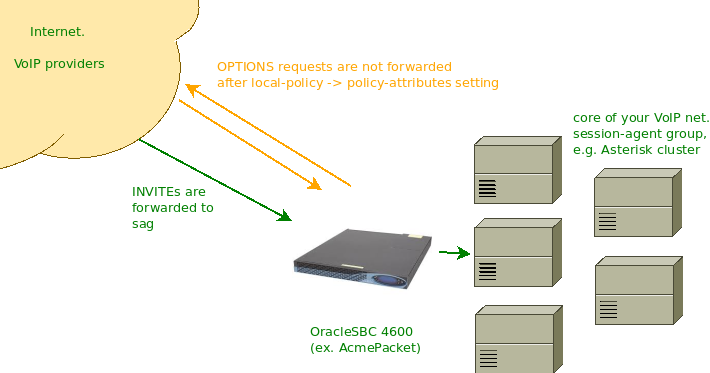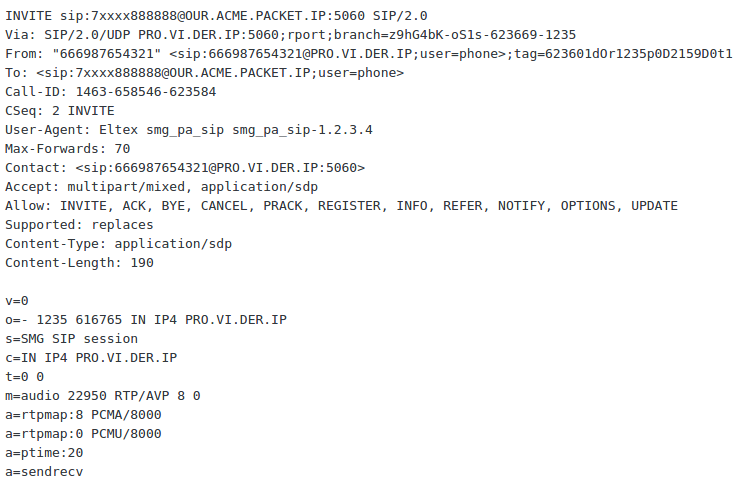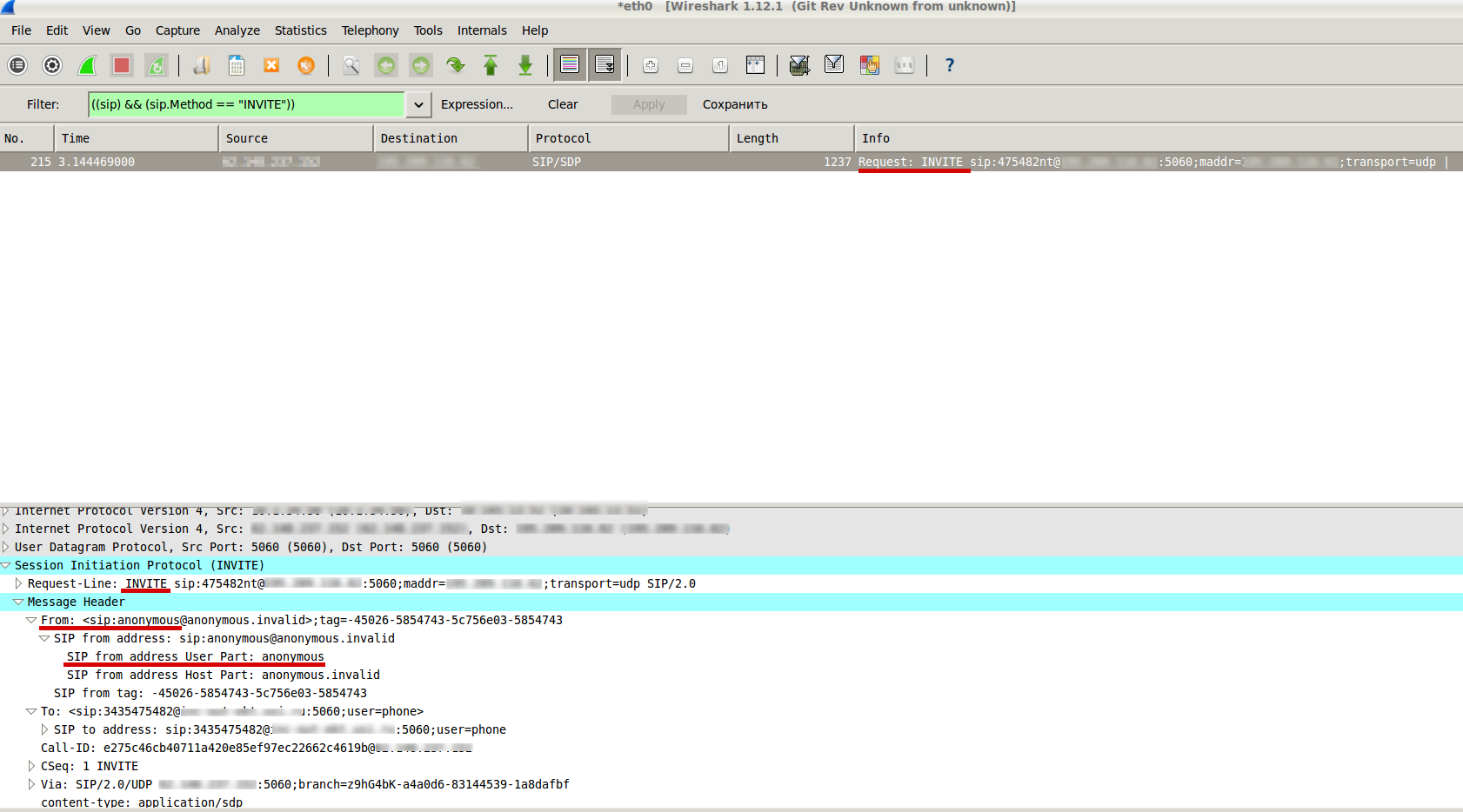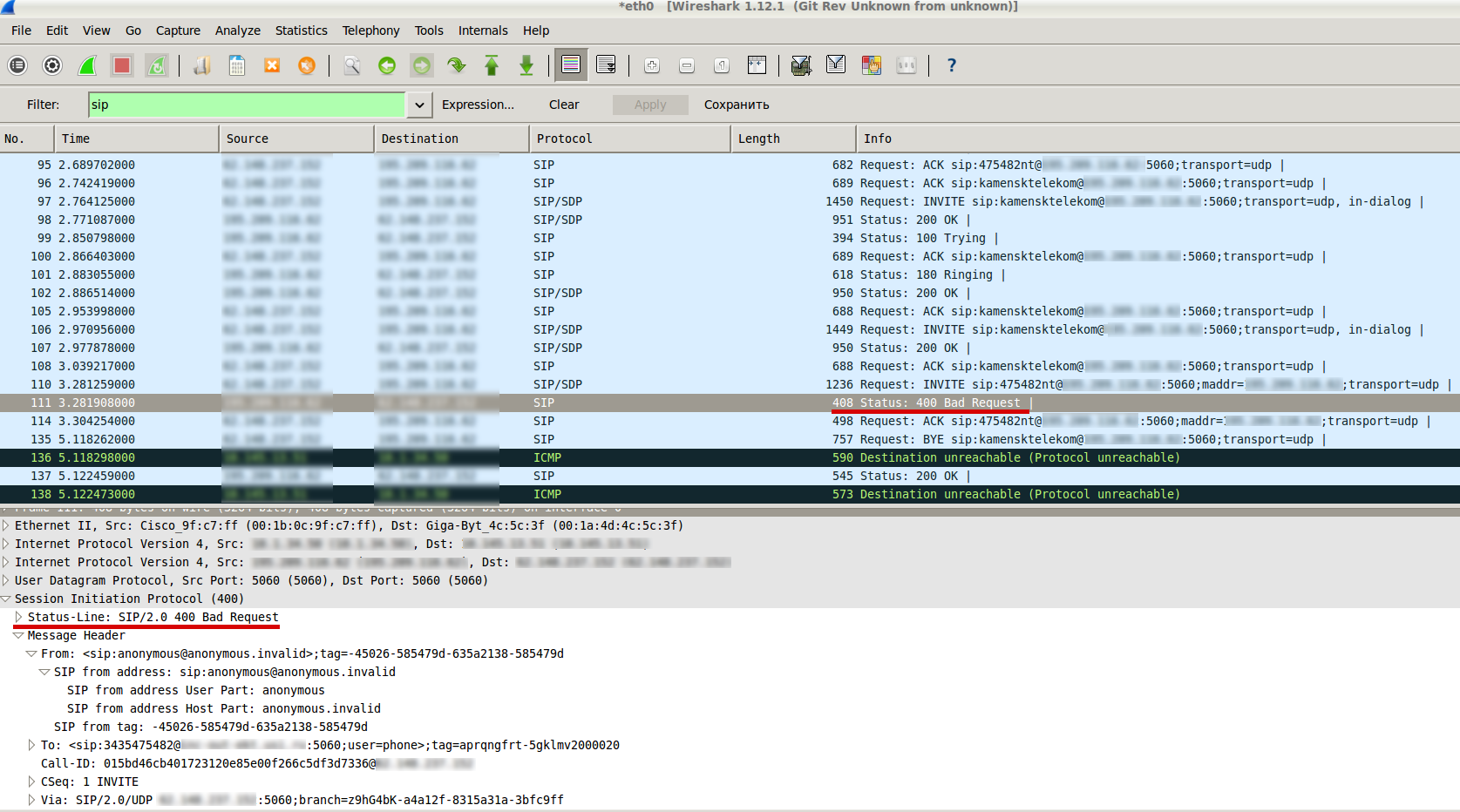A quick howto with illustrations of what you need to do to prevent OPTIONS requests from being forwarded by your OracleSBC/AcmePacket from outside to the core of your VoIP network.
Just specify correct SIP methods in the policy-attributes of local-policy and add one more policy-attribute for OPTIONS.
Specifying ‘next-hop’ as ‘0.0.0.0’ will make SBC to reply 404.
Specifying ‘next-hop’ as ‘*’ will make SBC to reply 403.
Without these settings your SBC will forward OPTIONS sent by session-agents in the Internet (e.g. VoIP providers with which you configured SIP trunking) to your next-hops, usually this is your core network. Finally, such OPTIONS requests are answered not by SBC, but by your inner VoIP servers. These replies are not just undesirable, they also contain User-Agent header of your core equipment and the Contact header indicates their IP address.
You may also skip the creation of a separate policy-attribute for OPTIONS method, just leaving the one for every other methods you need (e.g. INVITE, PRACK, REFER, UPDATE). In this case your SBC will reply “480 No Routes Found”:








